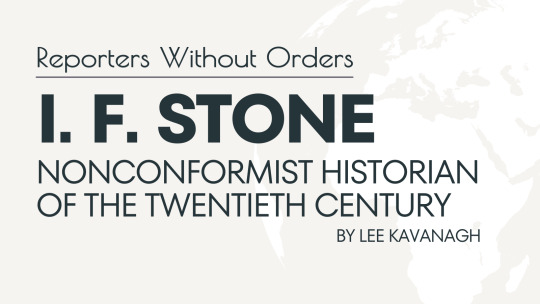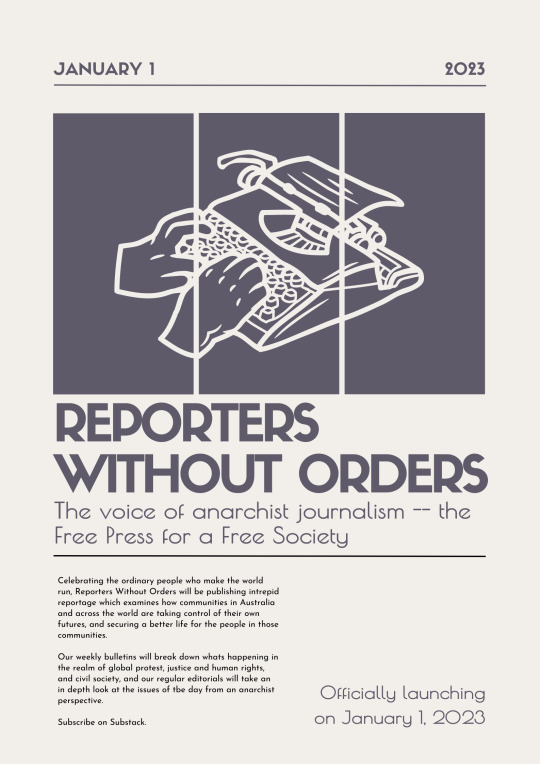Text

The most important thing to understand about what's happening in Gaza is that Israel is carrying out a genocide.
The word ‘genocide’ has been invoked with reference to previous Israeli “operations” in Gaza, and with some justice. But on those occasions, people were describing the animating ideology and the essential character of the violence and of the IDF’s attitude towards Palestinian civilians and civilization.
I’ll leave it to others to debate the merits of invoking genocide in this way; the important point is that when I say today that Israel is carrying out a genocide, I am saying something very different. I am saying that Israel has deployed troops to Gaza this time not merely to punish or to hobble the development of Palestinian civilization in Gaza, but this time intends to actually, completely and systematically, eliminate Palestinian existence in Gaza. Previous operations have always caused thousands of deaths, widespread destruction of civilian infrastructure, and displacement of tens of thousands of Gazans; this time practically the entire population of 2.2 million people have already been displaced, and Israel shows no sign of backing down from its brazenly displayed intent to kill or send fleeing into Egypt every single Palestinian in Gaza. In short, I am not saying that the Israeli power structure is motivated by genocidal beliefs and attitudes but that they are actively and deliberately exterminating the entire Palestinian population of Gaza.
[Continue reading on Substack.]
#news#journalism#gaza#israel#palestine#worldnews#gaza genocide#ceasefire#ceasfire now#anarchism#antiwar
0 notes
Text
When the authorities refused to let him see his personal doctors, he went on hunger strike.
Two weeks into the strike, Navalny was suddenly tantalised by the smell of grilled chicken. Officers had brought an electric stove into the jail – a “friendly, Orwellian concentration camp”, as Navalny labels it – and an inmate had begun to cook. Prisoners don’t normally eat such tasty fare. But this chicken wasn’t a treat: its sole purpose was to taunt Russia’s political prisoner number one.
For all the humiliation and degradation he has faced, the demonisation on state tv, even the assassination attempt, Navalny believes that the grilled chicken is the most apt example of the pettiness, cruelty and corruption of Putin’s regime. As he wrote in an Instagram post sent through his lawyers in March: “The whole gang of thieves...do not believe that between ideas and a chicken, anyone would choose ideas.”
- 'The reckless heroism of Alexei Navalny', Arkady Ostrovsky, The Economist, May 2, 2021.
It was reported yesterday that Navalny died in the Siberian gulag to which Putin relegated his only serious opposition when poisoning failed to neutralize him. This 2021 profile is a good read for anyone interested in the arguably the most politically significant Russian of the 21st century.
0 notes
Text

[Link.]
0 notes
Text
1 note
·
View note
Text
0 notes
Text
Wait...I don't want to let the IDF off the hook for any wrongdoing they're engaged in, but this doesn't seem logically congruent to me.
Even if we presume the IDF is operating within the laws governing warfare and doing their utmost to minimise civilian casualties, if they heard what sounded like children in an area they were operating in an attempt to engage combatants, they would still be obliged to investigate.
That the IDF approaches when Hamas plays these sounds over speakers doesn't prove that they could only be approaching with the intent of murdering the children... It tells us nothing about their intent either way - we can only conclude that they were seeking to identify whether there were children and noncombatants in an area where they had previously been firing on combatants.

10K notes
·
View notes
Text
There has been much discussion in the last few weeks about the slogan, "From the river to the sea," with the Palestinian-American congresswoman Rashida Talib censured by the Congress for invoking it and the widespread adoption of the phrase by progressive pro-Palestinian groups cited as evidence of antisemitism.
While I'm sympathetic to the arguments by e.g. Talib that her use of the phrase is not intended literally but only as a means of identifying with a historical struggle, I likewise cannot disagree that in purely rational terms the phrase is inherently problematic.
But what has been missing from this conversation is the realisation that Hawks on the Israeli side have had their own equivalent of this slogan, with the same problematic implication, in this case explicitly intended, of the complete elimination of the other group. During Operation Protective Edge in 2014, current Israeli PM Netanyahu stated his attitude towards the peace process, which is the attitude which has always guided Israel's ruling elite:
"I think the Israeli people understand now what I always say: that there cannot be a situation, under any agreement, in which we relinquish security control of the territory west of the River Jordan."
In other words, from the river to the sea, Israeli hegemony.
7 notes
·
View notes
Text

Read it on substack.
0 notes
Text
0 notes
Text
0 notes
Text

It’s hard to choose a starting point from which to neatly begin the story of Isadore “Izzy” Feinstein Stone. His extraordinary intelligence certainly looms large: he is one of a very few individuals to whom the term ‘genius’ is justly applied. He is also one of the most colourful and most loveable figures in the history of journalism, and his eccentric, warm, affable character has delighted countless enthusiastic young counter-culture steeped journalists and colours everything to do with him. But perhaps the most significant facet of our many-faceted subject is his singular personal and professional fortitude, moral instincts, and basic, palpable goodness of heart.
One thing I have noticed from reading a number of recollections written about Stone by younger colleagues who were fortunate enough to work with and befriend him, is the unfailing consistency with which the same sentimental tone creeps into each of their reflections. Among the million laudatory things that could justly be said, one of the most striking is that he was eminently lovable. These friends and co-workers plainly loved him. Even I, who was born after he had passed away, feel very warmly about him. He is the perfect archetype of the countercultural, antiauthoritarian intellectual and humanist – how could you help but love him? And I don’t mean countercultural or antiauthoritarian in any cheap or superficial way. I don’t say these words the way they are used to describe figures like William S. Burroughs and other culturally savvy, performatively cool, and usually morally indifferent socialites who pass themselves off as heroes of the counterculture in every generation. I mean it in the sense of not being bound by the orthodoxy of one’s era, society, profession, or social set; of having the independence of mind and strength of character to follow one's own compass, whether it means going against the orthodoxy or whether it means going with the orthodoxy. Independence is one of its defining traits, as in integrity.
Read the full article on Substack.
#news#journalism#writing#underground press#journalists#antiwar#essay#biography#profile#counterculture#rebellion#protests#protest
0 notes
Text
Happy New Year, everyone! With the beginning of 2023, we have finally started publishing as of today.
0 notes
Text
Launching in one week!

0 notes
Text

2 notes
·
View notes
Text
RWO doesn't officially launch until January 1, but feeling compelled to speak about what's occurring in Iran right away, we published this article in early October.
#Iran#women movement of iran#mahsa amini#say their names#human rights#police brutality#protests#writing#opinion#anarchism#news#substack#politics
1 note
·
View note
Text
Reporters Without Orders: Launching January 1, 2023
Reporters Without Orders is an anarchist news publication, launching on Substack on the first day of next year. You can subscribe to the Substack page by following the attached link.
The kind of subject matter that will be covered is suggested in part by the name itself, and by the tagline, “the home of anarchist journalism.” By “anarchist journalism,” I do mean all of the obvious things: journalism which is anti-authoritarian, which holds power up to scrutiny, which gives voice to needs and welfare of the voiceless, the disenfranchised, the deprived, excluded and subordinated. But it means much more than this, as well.
The philosophy of Anarchism is not merely oppositional, against authority, against government, etc. It also offers its own rich, creative, and eminently positive vision of a different, free society.
It proposes that people have the capacity to organize every necessary or desirable aspect of a functioning society through voluntary arrangements and relationships. A function of anarchist journalism, therefore, is to document the myriad ways in which people are already doing this, whether motivated by an explicitly anarchist ethos or not. In short, a major focus of anarchism is what may broadly be called ‘emergent order’.
A focus on emergent order involves, for instance:
Stories about people, groups, and projects which address the needs of their community and its most disadvantaged members, especially in innovative and unique ways;
Analysis of governmental regulatory and artificial barriers to essential services and better living standards;
Informative articles on what individuals can do to take a more active part in their communities; and…
Generally, such related subjects as:
the gig, sharing, and gift economies; in more theoretical language, black markets, gray markets, microenterprises, and homebrew production projects; modular and vernacular techniques for constructing affordable housing and other vital goods and services, and economies characterised by moves toward reduced capital outlays, distributed infrastructure, and scalability; disruptive technologies; co-operative businesses and business models;
unschooling, homeschooling, free or open schools/universities, and other alternative systems of education; community organization and developing the infrastructure of civil society; mutual aid and resource sharing; etc
In addition to this, we will cover a broad cross-section of those aspects of the social and political landscape which seem most significant to us, including: law and justice, with a focus on the Melbourne and Victorian courts and the cases being heard therein, and Victorian legal advocacy and reform groups; policing and police reform; protests and other forms of civil activism in Australia; civil unrest and activist movements globally, and particularly the global anarchist movement.
Finally, one of the aims of this project which is nearest to my heart is to celebrate the craft and tradition of journalism, and to keep alive the memory of its great practitioners and the noble heights to which they took the medium. To this end, I will be publishing a series of articles on the history of journalism, consisting of: longform essays on significant chapters in that history — the Abolitionist Press, the Afro-American Press, the "Race Beat", the Muckrakers and the genesis of investigative journalism, etc. — supplemented by profiles and critical discussions of the writers who figure most prominently in these narratives and annotated reading lists/guides to the journalism of these historical episodes; and profiles of the great journalists of history, such as I. F. Stone, Murray Kempton, Sy Hersh, Tom Wolfe, Hunter Thompson, etc., etc.
If you’re interested in getting involved, submitting an article, or becoming a regular contributor, drop me a note at [email protected] or check out the ‘Submissions/Volunteers’ page.
1 note
·
View note